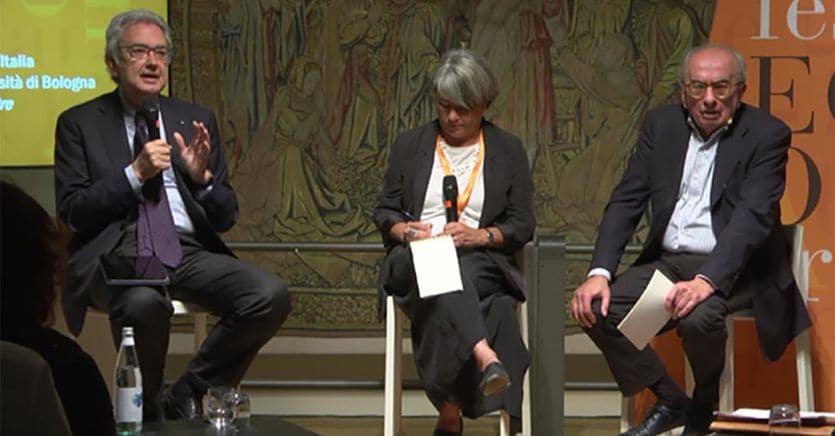The European Union is pushing the accelerator too hard on the road to decarbonisation and now we are in danger of crashing. The diagnoses expressed by Franco Bernabé and Alberto Clò, economists by training and long-time experts in both energy and industrial policies, compared during the Trentino festival are very similar diagnoses.
Both have concerns for European industry, overwhelmed by costs and obligations that favor China’s advance, for citizens forced to make ever heavier sacrifices and for the tendency to neglect measures to adapt to climate change, with which to prevent or buffer the effects of extreme weather events, such as those that hit Romagna.
The current EU executive is accused of “ecological fundamentalism” and “regulatory bulimia” by Professor Clò, professor at the University of Bologna, director of the magazine Energia (founded with Romano Prodi) and Minister of Industry in the 1990s, in a caretaker government led by Lamberto Dini.
But neither is Bernabè, manager in the past also at the helm of Eni, who today as president of Acciaierie d’Italia finds himself at the center of a huge and emblematic a challenge that is both environmental, industrial and social. «For the transition – he says – the times cannot be those dictated by the EU. Everything cannot be trivialized by saying “it can be done tomorrow”, we need medium-term perspectives, setting obligations compatible with industrial times, which are fast but still require planning ».
In Trento Bernabè concedes a few words to the delicate events of the former Ilva, to exclude as “impossible” the hypothesis of imminent stops in Taranto, after the ultimatum launched by the Municipality for an increase in benzene emissions: “temporary overruns”, by a plant that has “emissions far below the legal limits and smaller than what we inhale while filling up with petrol”.
